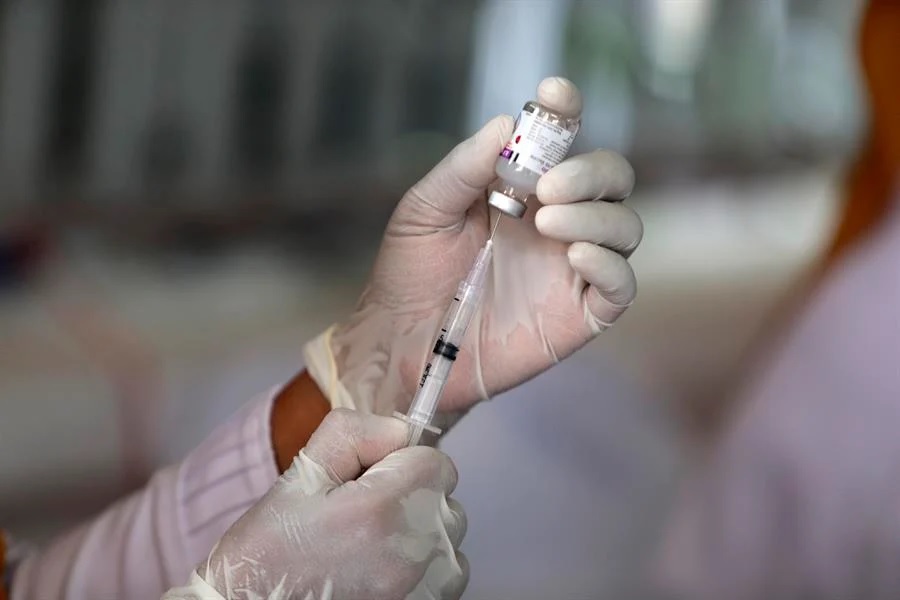RIO DE JANEIRO, BRAZIL – Senators want to discuss technical criteria projects for the regulation and distribution of vaccines against Covid-19. The proposals would also establish rules for conducting immunization.
The plan is that standards will be in place before a vaccine is approved for use. Among the proposed rules is the federal government’s obligation to transfer the required funds to states to purchase vaccine doses.
There are two bills in progress in the Senate: one by Senator Alessandro Vieira (Cidadania-SE), which is more advanced, and the other by Senator Rose de Freitas (Podemos-ES). The bills should be joined to expedite processing.

The next concerted effort of Senate votes on the argument for discussing the subject will be held between November 3rd and 5th, when part of legislators will be in Brasília. If passed, the projects will still be submitted to the full Senate.
Vieira’s proposal establishes that the federal government will provide the distribution of vaccine doses, as well as the transfer of funds to states, Federal District and municipalities for the purchase of doses. As the vaccine cost is not yet known, there is no estimate in this respect.
The bill also determines that the federal government will distribute the funds based on criteria such as population, total deaths from the disease, and hospitalization rate.
Vieira also wants vaccination to prioritize the groups considered most vulnerable to Covid-19. “It is important that the country ensures the equal distribution of vaccine doses to prevent prevalence in states with greater resources or better-structured managers,” says the author of the bill.
The discussion gathered momentum again last week after Minister of Health Eduardo Pazuello announced an agreement to purchase the vaccine produced by the Chinese pharmaceutical company Sinovac in partnership with the Butantan Institute, linked to the São Paulo government.
However, the following day, President Jair Bolsonaro ruled out the purchase by the federal government until the vaccine’s efficacy is confirmed, a redundant statement, as the vaccine can not be produced for use in the population unless there is proof of efficacy and safety.
According to Vieira, the recent political dispute surrounding the vaccine is the missing driver for Congress to place the issue to a vote. “We must not allow political focus to push aside the technical debate. There is no point in vaccinating the whole state of São Paulo and not vaccinating Rio de Janeiro, for instance,” he said.
Rose’s proposal will be incorporated into Vieira’s. She is a step further than her colleague when addressing rules for immunization campaigns and the streamlining of authorization for production, import, distribution, and marketing of the vaccine.
On Friday, October 23rd, ANVISA (National Health Regulatory Agency) authorized the exceptional import by the Butantan Institute of six million doses of the Coronavac, from China’s Sinovac. However, the endorsement does not mean that the doses may be administered. This will still be dependent on clinical trial results and vaccine registration in Brazil.
The decision occurred one day after the Institute’s general director Dimas Covas stated that ANVISA was delaying the import authorization of raw material that will enable the vaccine to be manufactured in Brazil.
“We want to suggest that the authorization procedures for the production, import, distribution, and marketing of vaccines against Covid-19 and the required raw materials for its manufacture be simplified, to ensure its timely availability to the population,” said the senator.
Published on Friday, the endorsement for the import of doses represents part of the decision on the process. The assessment of raw material imports, scheduled to occur at an ANVISA meeting on November 4th, is still pending.
Vieira’s bill, which is now ready to be taken to the Senate floor for a vote, has been amended 16 times, but Trad’s report is not yet available to his peers.
“The federal government has always funded vaccines, and it is only logical that it should do so now. This is a settled project, which is in the interest of the Brazilian people and it will face no problems to be voted on,” said Otto Alencar (BA), leader of the PSD party in the Senate.
Most of the amendments address prioritizing immunization for the elderly, other people in risk groups, and professionals who work on the front line in the fight against the pandemic.
In his report, Trad will argue that the vaccination methodology against Covid-19 should follow the plan already established by the SUS (National Health System) for other vaccination campaigns.
However, in the Senate, the establishment of rules for the distribution of doses of an immunizer that is not yet ready should be determined only after the introduction of the vaccine, according to some senators. This is sustained by the leader of the PSDB party in the Senate, Izalci Lucas (DF). “The discussion we have in the Senate today is on a vaccine that has not even come. For now, it is speculation,” he said.
Source: Folhapress

